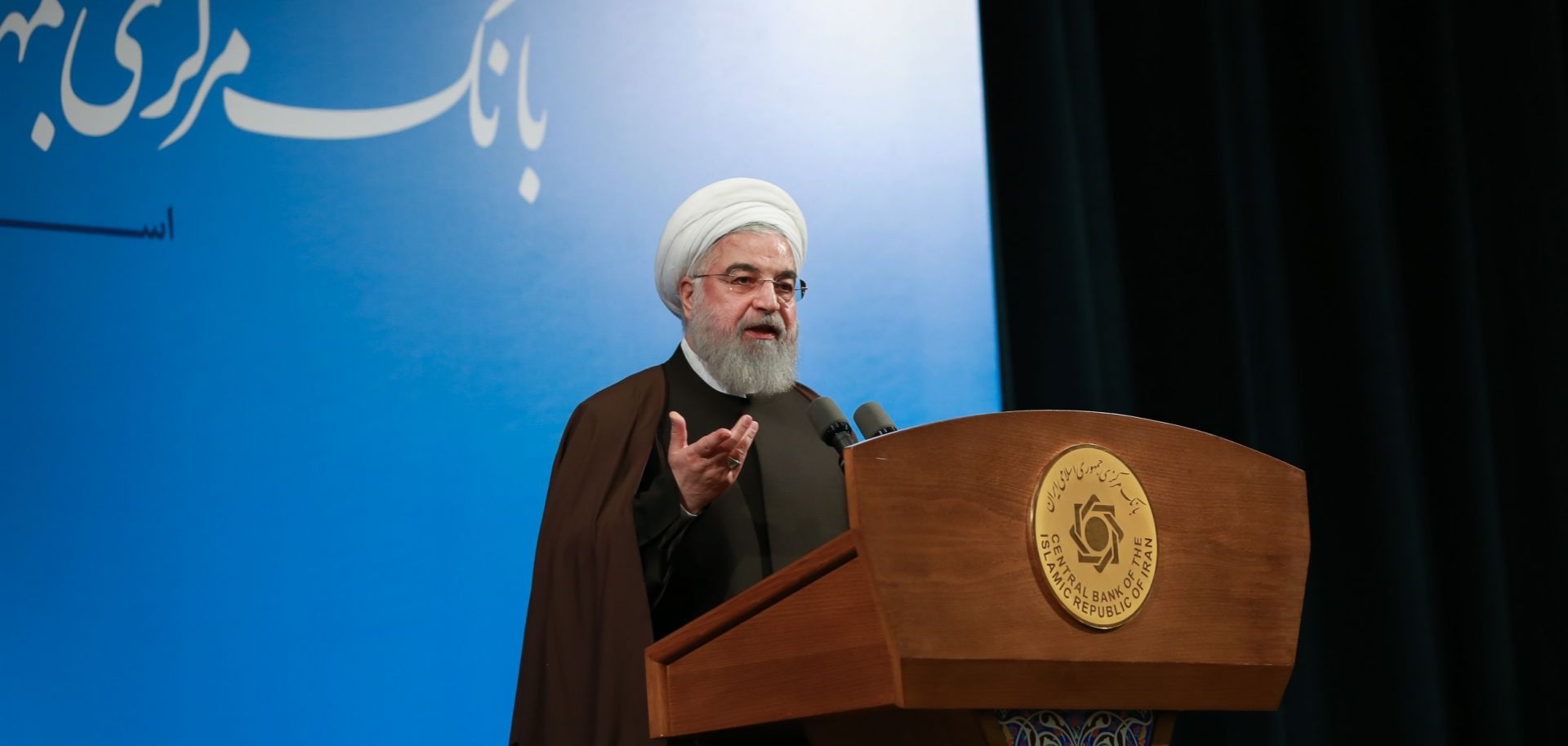ASSESSMENTS
Iran's Frail Banking Sector Poses a Threat From Within
Jun 14, 2019 | 09:00 GMT

Iranian President Hassan Rouhani delivers a speech during a visit to the Central Bank of Iran in Tehran on Feb. 26, 2019.
(Iranian Presidency/Handout/Anadolu Agency/Getty Images)
Highlights
- Since the 1979 Islamic Revolution, Iran's banking sector has languished as Tehran has politicized its central bank and monetary policy far more than almost any other country in the world.
- U.S. sanctions are putting tremendous pressure on Iran's extremely fragile financial system by sending Iran into a period of stagnant economic growth accompanied by high inflation.
- President Hassan Rouhani has pushed to reform the banking sector and address its systemic issues, but the country's current economic crisis has short-circuited his efforts.
- The continual need to solve short-term economic crises over the years has delayed banking reforms. Tehran, however, has reached the point of needing to address the sector's problems or risk its collapse.
Subscribe Now
SubscribeAlready have an account?
